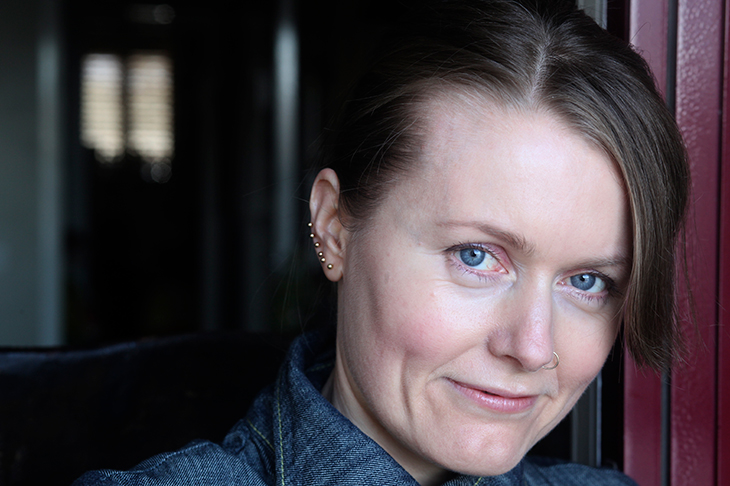In 2017’s Goldsmiths Prize-winning novel H(A)PPY, Nicola Barker strewed pages with multicoloured text. The Cauliflower, her joyful previous offering, employed winky-face emoticons while telling the story of a 19th-century Hindu mystic. In her 13th novel I Am Sovereign, huge fonts careen, in the space of an exclamation, into tiny fonts. Bold and underlined text prickles on the page. Barker has many ways of presenting what one of her characters, an estate agent from Llandudno called Avigail, describes as ‘BASTARD WORDS’. And these bastard words are all that the novel’s three protagonists have when trying to distract themselves from their doubts, or break free from what is holding them back.
Charles is a 40-year-old hoarder who believes he has wasted his life and could never ‘get started’. He is selling his mother’s house to settle debts. Avigail, in charge of the sale, was raised in a Hasidic Jewish community but felt constrained by it, only managing to establish relationships in the ‘REAL WORLD’ when she was hospitalised for anorexia; outwardly conventional, she finds it an effort ‘trying so determinedly to be normal’. Ying Yue, the dutiful daughter of the woman viewing the property, ‘gently rebels by constantly playing funny little games inside her mind’.
They each idealise YouTubers who project the perfect outward existence: a life coach who talks about the ‘Toxic Super-Ego’; an Australian housewife with a face tattoo. The novel’s 200 pages detail the protagonists’ twining internal existences over the course of a farcical 20-minute house-viewing during which they feel they might each have come to experience some form of self-knowledge, or higher knowledge. But nothing truly ‘gets started’. Or rather, ‘nothing much of note happens, really, does it?’, as Barker sticks her head over the authorial fence to say.
That might be the case until the games begin. We are told that a new character will be entering, but that he has not given his ‘permission’ for ‘The Author’ to speak for him. Any ‘theorising’ on his ‘feelings/ thoughts/motivations’ will be in a different font. The focus moves from people trying to take control of their lives to a writer trying not to cede authorial control of those lives.
Barker’s experimentalism has always tended to polarise readers; and with its postmodern set-up and eccentric typography this novel will do so too. As someone who both loves Barker’s mind and is often baffled by her choices, I found I Am Sovereign frequently irritating but rarely unpleasurable.
It feels a little like one of the throat-clearing books (Burley Cross Postbox Theft, or Clear: A Transparent Novel) she writes in between the bigger ones that she lands so well (Darkmans, Behindlings, The Yips). But you can see, too, that reading it that way is part of its intention. There aren’t many British writers who have Barker’s sort of courage — to get started on ideas that might appear like trifles, handle them seriously, and produce works that are as close as literature gets to pure play.
Got something to add? Join the discussion and comment below.
Get 10 issues for just $10
Subscribe to The Spectator Australia today for the next 10 magazine issues, plus full online access, for just $10.
You might disagree with half of it, but you’ll enjoy reading all of it. Try your first month for free, then just $2 a week for the remainder of your first year.


![[Getty]](https://www.spectator.com.au/wp-content/uploads/2019/07/Whitby.jpg?w=620)











Comments
Don't miss out
Join the conversation with other Spectator Australia readers. Subscribe to leave a comment.
SUBSCRIBEAlready a subscriber? Log in